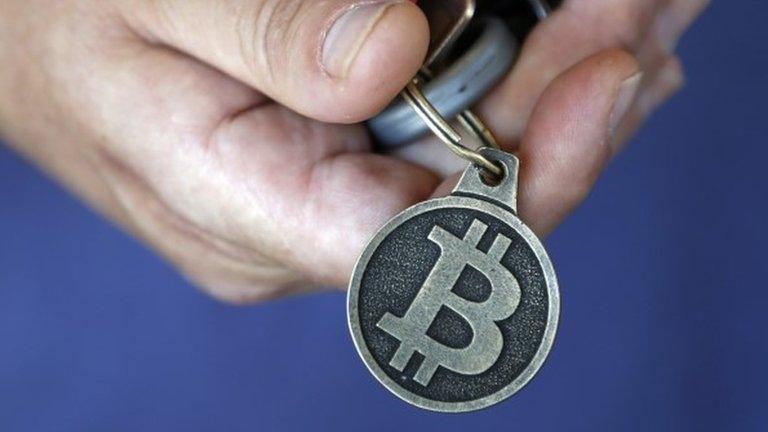Jail term for Silk Road bitcoin deals
- Published

Raids in early 2013 closed the Silk Road and led to the capture of its operator
Bitcoin trader Charlie Shrem has been sentenced to two years in jail for indirectly helping people swap cash for bitcoins on the Silk Road marketplace.
The Silk Road shut down in 2013 following raids by the FBI and other law enforcement agencies which said it was trading in illegal drugs.
Shrem was caught in the Silk Road raids for trading a total of $1m (£640,000) for bitcoins used on the site.
His sentence also includes forfeiting $950,000 (£608,000) to the US government.
Shrem was not directly involved with the Silk Road but was charged because of his association with Robert Faiella who set up an exchange that let the marketplace's customers swap cash for bitcoins. The virtual cash was the only form of currency accepted on the Silk Road.
Bitcoins are a virtual currency built around a complicated cryptographic protocol and a global network of computers that oversee and verify which coins have been spent by whom.
The Judge who handed down the sentence said Shrem was not "some kid making a one-time mistake" but had "excitedly" helped Faiella get access to bitcoins. Faiella is due to be sentenced in late January. He has pleaded guilty to running an unlicensed money transmitting business.
Prior to his arrest Shrem was a strong advocate for bitcoins and served as vice-chairman of the foundation that helped to guide the virtual currency's development. He has now resigned from this post.
Lawyers working for Shrem said his involvement stemmed from his interest in bitcoins rather than the Silk Road. The two-year sentence is less than government lawyers sought who said he should face 57 months in jail.
The operator of the Silk Road, Ross Ulbricht, is due to face trial in January. He has pleaded not guilty to charges of dealing drugs and conspiracy.
- Published10 November 2014

- Published7 November 2014

- Published30 June 2014

- Published4 September 2014
